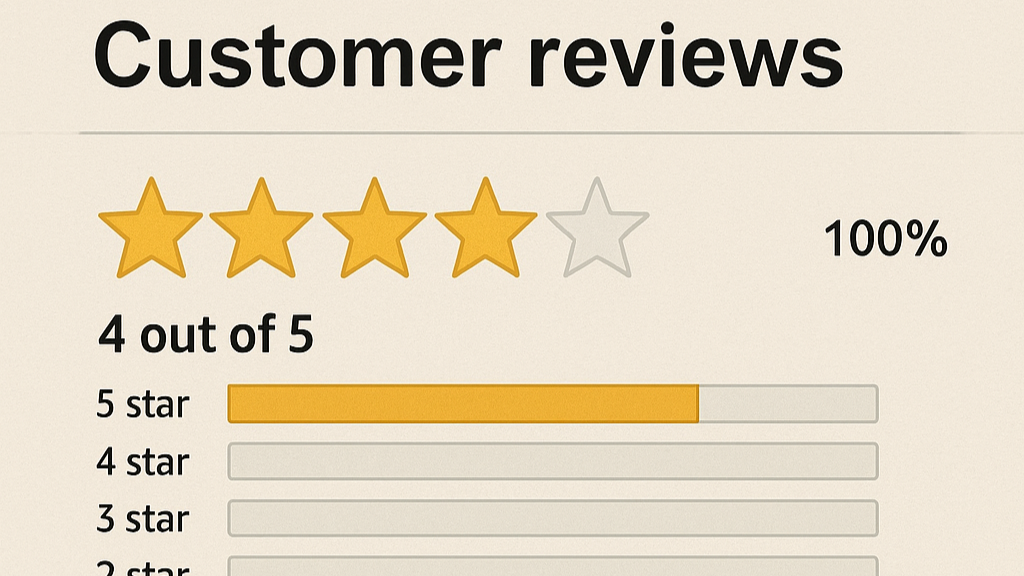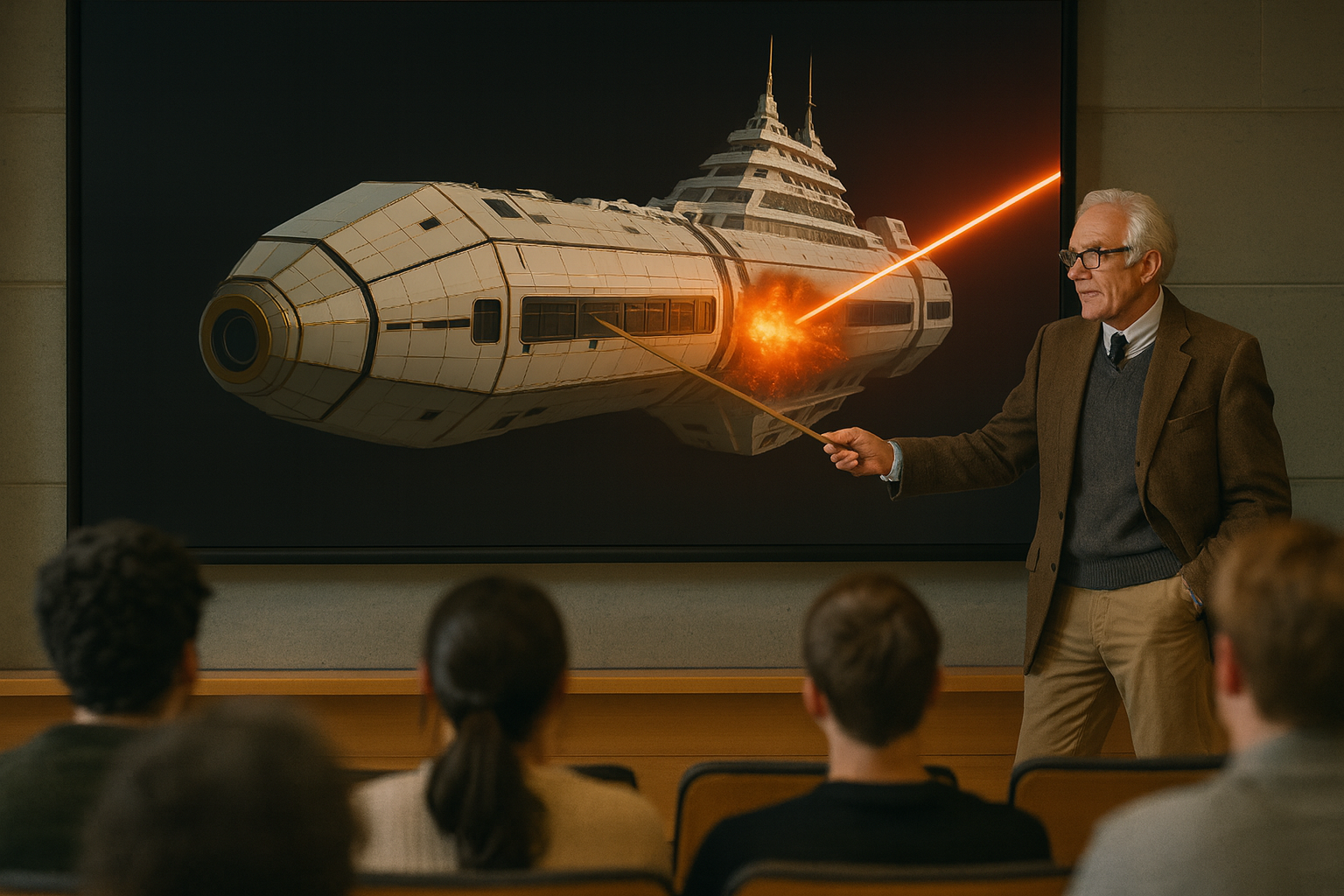My Personal Amazon Rating for My Debut Novel (And Why It’s Not Five Stars)
My Personal Rating for Into the Infinite Unknown (Why it isn’t Five Stars).
I truly believe my debut novel is as good as I could get it. So why not max out my own personal rating?
Here is the question behind that decision: can you be objective about your own work? Can you read it not only as the author who has lived and breathed every detail for years, but also as the reader who opens the first page with no knowledge of what’s coming? I’d like to think so—but the truth is more complicated, especially when you’ve been living inside the world for so long.
World and character building are where objectivity slips away most easily. You’re approaching the page with the same imagination that conjured it. So when you describe a character moving left toward the door or heading down the stairs, you know exactly what that means—what the room looks like, how the space is shaped. The reader, though, might be left wandering, disoriented, because you didn’t map it out clearly enough. Or with dialogue: you know the tone, the nuance, the irony in your head. It sounds organic and alive to you. But the reader only has the words themselves, stripped of that private soundtrack, and they may not hear what you intended at all.
With Into the Infinite Unknown, the world is utterly alive in my mind. But the harder question—the one that matters—is whether I made it alive in yours.
Pacing is another stumbling block. As the author, I know where the story is going, so I grant it grace. I’ll linger in the grand introduction because I already trust the reward waiting at the end. But readers don’t owe me that patience. What feels to me like a sweeping overture may feel to them like precious minutes slipping away.
So, can I be objective? Not really. Which is why, if I had to rate my own debut, I wouldn’t give it five stars. I’d give it four. Four stars for a book I’ve poured years into. Why? Because the first book is as good as it can be for a beginning—but it is a beginning. And beginnings should leave room for growth. My goal is that each book in this series will outshine the last, richer and more layered until the whole saga, when finished, deserves that elusive five stars.
But at the end of the day, my rating isn’t the one that matters. Yours is. I can only see the story through the lens of the one who created it—you see it through the lens that decides whether it lives or dies in someone else’s imagination.
So here’s my invitation: read it, rate it, tell me what you see. Did I make the world come alive for you? Did the pacing pull you along—or lose you in the opening stretch? I gave it four stars. What will you give it?
Two Boys From Tennessee and Hopefully A Semester Worth of Subtext
Or Literary Criticism of The Cousins Intrepid in a Geopolitical Context
Having spent years working in higher education (and probably listening to a bit too much public radio), I’ve always been fascinated by the depth of a good story. Professors can spend an entire semester peeling back the layers of a single narrative—or even a historical event—and still find new angles. The idea that something can be examined from so many perspectives, yet still hold together, has always amazed me.
For years now, the stories of Flynn and Zane Harper and their crew have been rattling around in my head. I waited a long time before releasing them into the wild, because I wanted to be sure the series had those same layers—something you could enjoy on the surface as a thrilling adventure, but also peel back if you wanted to dig deeper.
On the surface, of course, the books need to stand on their own as solid adventures. If the story doesn’t entertain, the subtext doesn’t matter. Beneath that, the characters have to feel real within their world. For me as the author, that means knowing far more about each character than what makes it onto the page—their psychology, their private motivations, even details that may never be revealed but shape how they act. Every character must have a reason to be there, and in theory, even a “side” character should be strong enough to carry their own story.
So does The Cousins Intrepid succeed in that regard? Only time will tell. My goal is that by the time you close the final chapter of Book Seven, you won’t just have read seven adventures—you’ll see how every thread, every arc, and every moment ties back into a single, cohesive whole. Whether I’ve succeeded…well, that’s for you to decide.
📖 Book 1: Into the Infinite Unknown is available now: Amazon link
You gotta believe
It all begins with an idea.
When you create something, you have to believe in it—even if you’re the only one.
I know the series I’m writing won’t be for everyone, and some people will dislike it for their own reasons. I’m okay with that. I think I’ve reached the point in life where I no longer feel that everything I do needs to be universally liked (I might have reached it only two days ago, but I’ve still reached it).
Deep down, I believe there’s a fandom out there for my stories. Somewhere, there’s a boy or girl who will be deeply moved by Flynn’s final speech in Book 1, or feel genuinely heartbroken over the revelation in the second chapter of Book 2. I believe there will be readers who, after finishing the third book, will debate online about whether the ending stays true to the spirit of the series, arguing over whether Zane did the right thing. I can picture someone saying I “just don’t get what the Protectorship is all about.” I love the thought that someday I’ll meet a person who knows my universe better than I do—and I’m thrilled by the idea.
When that happens, when my passionate fandom comes to life, it will mean I’ve done my job as a storyteller. Right now, there isn’t a shred of evidence that will happen.
But I believe. And for now, that’s enough.


